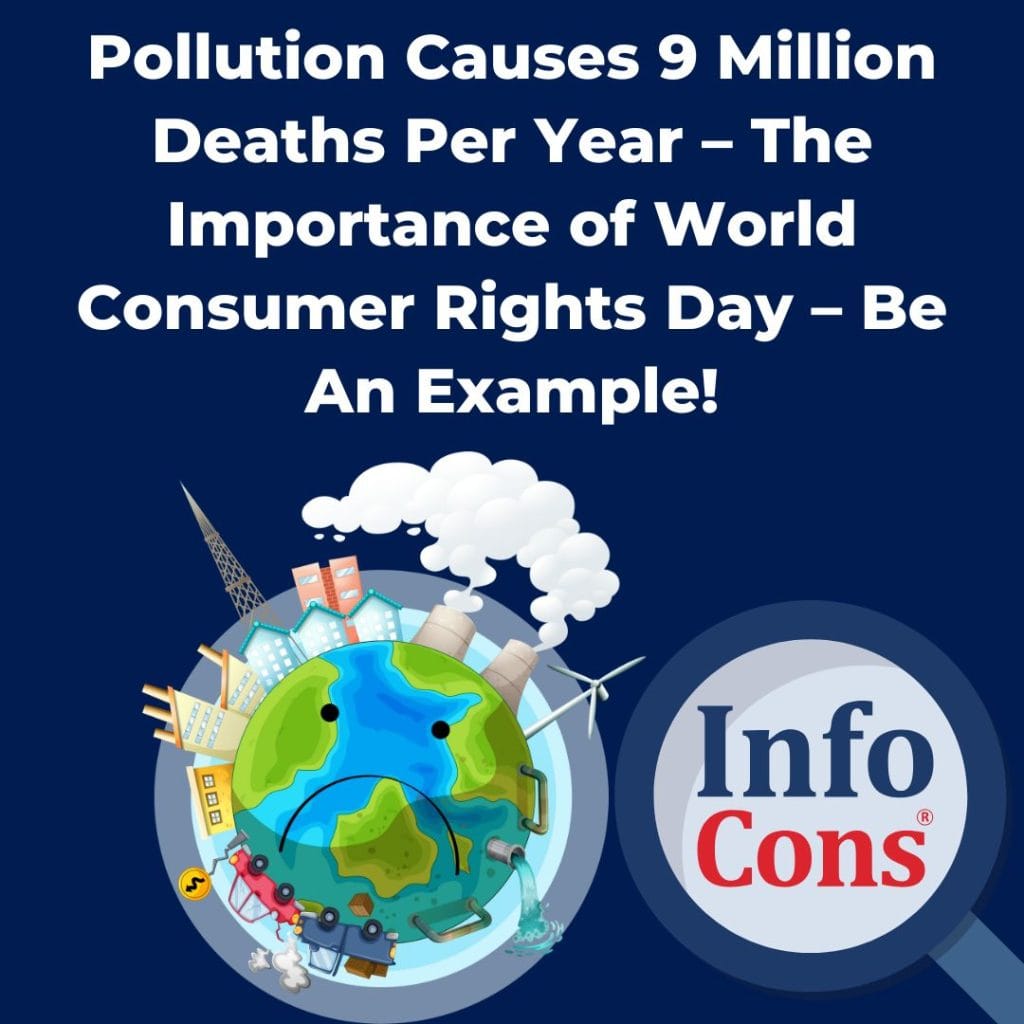
World Consumer Rights Day (WCRD) is an annual opportunity to spotlight the rights and needs of consumers across the globe. This year, on 15 March 2025, consumer protection organizations worldwide will come together to advocate for “A Just Transition to Sustainable Lifestyles”—calling for stronger protection and empowerment of consumers to support the urgent changes needed to achieve global sustainability goals.
Why Sustainable Consumption Matters
Sustainable consumption is a vital component in addressing today’s environmental and social challenges. According to the Intergovernmental Panel on Climate Change, strategies focused on consumption could reduce greenhouse gas emissions in key sectors by up to 70% by 2050. Similarly, the 2022 Global Biodiversity Framework identified enabling sustainable consumption as a critical target for protecting biodiversity.
But this isn’t just about the planet—it’s about people. Without immediate action, the challenges consumers face will only intensify. Rising food and energy prices, failing food systems, and environmental pollution are already creating widespread impacts. For example, pollution from air, chemicals, and plastics is responsible for at least 9 million premature deaths annually.
Read also : How to Reduce Your Risk of Breast Cancer – Prevention Tips
Research by Consumers International, which surveyed 30,000 people across 31 countries, revealed overwhelming public support for sustainable living: 94% of consumers expressed a desire for a shift toward more sustainable lifestyles. Yet, most feel hindered by systemic barriers—over 80% of respondents indicated they need stronger support from governments, businesses, and international organizations to make sustainable, healthy living more accessible and affordable.
The Climate Crisis and Its Impact on Consumers
As we prepare for WCRD 2025, it’s important to reflect on the broader implications of the climate crisis and how it directly affects consumers:
- Health
Pollution causes 9 million premature deaths annually, while 3.6 billion people live in areas highly vulnerable to climate change. By 2050, climate-related factors could result in 250,000 additional deaths per year, with health-related economic costs reaching $2–4 billion annually by 2030.
- Food Security
Regions like Sub-Saharan Africa, South Asia, and Southeast Asia are most at risk, with 80% of the global population vulnerable to crop failures and hunger. Without solutions, 43 million people in Africa could fall below the poverty line by 2030 due to declining crop yields.
Read also : 5 Key Insights About Electric Car Battery Degradation
- Economy and Livelihoods
Rising seas could expose 600 million people to flooding, while heat stress may reduce global working hours by 2.2%, costing the global economy $2.4 trillion by 2030.
- Barriers to Sustainable Living
Key obstacles include affordability (49% of people find sustainable lifestyles too expensive) and availability (58% say eco-friendly products are accessible). Cultural norms also hinder adoption of sustainable practices, and many consumers misjudge the impact of their actions, often prioritizing less effective solutions.
- Consumer Expectations
Consumers hold governments, businesses, and institutions accountable for driving change, with 88% expecting large companies to push for stronger climate action.
How We Can Support a Just Transition
WCRD 2025 is not just a day of reflection—it’s a call to action. By addressing barriers to sustainable living and empowering consumers with the tools and choices they need, we can collectively work toward a just transition. This is a transition that doesn’t leave anyone behind and ensures that sustainable living is not just an ideal, but a reality for all.
Let’s unite on 15 March 2025 to champion this cause, raise awareness, and inspire action toward a healthier, fairer, and more sustainable future for consumers everywhere.
Read also : How 3 EU Countries Account for 81% of Jewellery Production
InfoCons – European Organization for Consumer Protection and Promotion of Programs and Strategies , a full member of the World Organization Consumers International, founding member of the Federation of Consumer Associations, and member of ANEC .